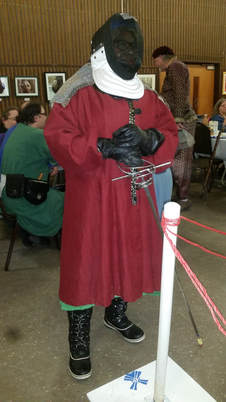|
The ancient Dell desktop unit sat on the table before a group of wide-eyed children, my students, one Sunday morning during church. I’d promised the young ones the week before that I would bring them some computer components to take apart. Don’t ask me how it happened, I don’t quite remember. I’m sure I was blinded by their bright-eyed eagerness. We were discussing Jeremiah 1 and Jeremiah’s non-excuse of being too young for the job God gave him. Age is not an excuse to not do something.
The children and I found ourselves talking about taking things apart. They liked taking things apart, I’ve been known to take things apart, I had a collection of computer components that I wanted to make go away. The idea slipped out of my mouth before it was fully formed. My students were ready to tear the computer apart with their bare hands. After giving it a good cleaning. But before the demolition we talked about Psalm 139:13-16. 13 For you formed my inward parts; you knitted me together in my mother's womb. 14 I praise you, for I am fearfully and wonderfully made. Wonderful are your works; my soul knows it very well. 15 My frame was not hidden from you, when I was being made in secret, intricately woven in the depths of the earth. 16 Your eyes saw my unformed substance; in your book were written, every one of them, the days that were formed for me, when as yet there was none of them Perfect fit for taking apart a computer, right? Well, you see kids, this piece of technology is humanity’s creation. Each one of you is God’s creation. Intricately designed, unique, one of a kind, never duplicated. As intricate and powerful as human technology becomes it still cannot match the power, beauty, and creativity of humanity itself. My brilliant young students peppered me with deep questions. What about when people are born with different kinds of disabilities? What about when people get sick and don’t get better? What about when people are teasing and bullying? The stuff they experience each day. The answers to their questions were not, are not easy. Understanding the depth of God’s love helped smooth some of the rough edges. Children can contend with moral and theological issues when given honest answers steeped in patience and grace. And then we tore into that computer.  First foray into fencing at a Society for Creative Anachronism event, February 2018. First foray into fencing at a Society for Creative Anachronism event, February 2018. I've always wanted to give fencing a try. I got the chance to indulge my curiosity about the craft. I liked it. I liked it a lot. Turns out, it works a lot like I thought it would. Of course my next thoughts after, "Squee, this is so awesome!" were, "This is so going into a story!" What better way to write a good sword fighting scene than to learn to fight with a blade, yes? Not every writer has the option of taking up a new hobby, or learning a new skill, for the sake of their writing. But we have to build our domain knowledge somehow. Domain knowledge is what an individual knows about the environment, the subject matter, they're working in. If I wanted to create a story in a world where animals used magic, I'd have to understand animal behavior to decide what kind of magic to give the animals as well as how and why they would use their magic. Thanks to the internet, building domain knowledge is often only a few (thousand) clicks away. This is a two edged sword. Who has ever searched for something only to find themselves deep into a completely unrelated topic hours later? For the domain knowledge that can't be gleaned from the internet, one has to get creative. How do you build your domain knowledge for your writing? |
AuthorI take a general what happens if I do this approach to life. It keeps things interesting. Archives
March 2021
Categories
All
|

 RSS Feed
RSS Feed